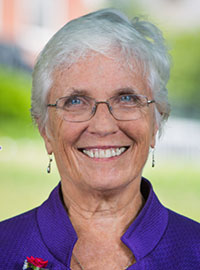The Somerville Times submitted five questions to the candidates for State Senate Second Middlesex District, along with the opportunity to include a short bio/statement. The following answers were submitted by the candidates (presented in alphabetical order by last name):

Leland Cheung
*
Bio:
My father immigrated here in 1969 and taught me the importance of civic activism, giving back to community, and participating in democracy. My parents also taught me the importance of hard work and investing in education, which led to my degrees from Stanford, Harvard, and MIT. Before joining the Cambridge City Council I was an entrepreneur and investor, helping develop the innovation economy and making sure it works for us.
Our extended community enjoys a long, rich history and also represents the future both economically and culturally. It is why my wife and I decided to settle down and raise our children here. Yet for all that promise, we face incredible challenges – a housing market that is pricing people out, transportation infrastructure that is underfunded and falling apart, an underfunded school systems that fail to emphasize STEM education and delay the promise of early childhood education, an innovation economy that remains inaccessible to many, an environment in peril, and a government that all too often puts the interests of big business over small families.
As your State Senator I will never shy away from bold solutions to addressing our challenges, even if it means upsetting the establishment status quo. I will remain committed to pragmatic and innovative leadership that reflects our communities. I will listen to your suggestions, criticisms, and ideas, as I continue to publicly post my personal cell phone number. I’m running for State Senate to apply my unique background towards solving our most pressing challenges. Join us!
1. What is your position on the ballot questions to “lift the cap” on charter schools and why?
I encourage voters to read the text and decide for themselves. When politicians and advocacy groups use extreme rhetoric, it often means they don’t trust residents’ reasonable judgement. The legislature could have avoided this, but failed. Education funding in Massachusetts just returned to 2009 levels. The ballot question is targeted towards Massachusetts’ worst performing districts, not Somerville. I don’t want charter schools to replace traditional public education; however, I realize that while I enjoy options for my daughter, many on waitlists have none. I’m voting yes because it’s not about what the MTA wants; it’s about what our kids need.
2. What is your position on the ballot question to “regulate marijuana” like alcohol?
I was in college at Stanford when California essentially decriminalized marijuana. It was a free for all, but their society didn’t collapse and their economy continued to compete. States that have legalized marijuana are enjoying hundreds of millions of dollars flowing into tax coffers rather than black markets. Our current marijuana regulations are part of an expensive, misguided, failed war on drugs that do more harm than good and perpetuate a pipeline to prison. This is long past due; let’s think ahead to ensuring new tax receipts are effectively spent on investments in education, transportation, treatment programs, and each other.
3. Due to the high initial cost estimates for the proposed Green Line Extension, the project has been stalled and is being scaled back. What would you do to make sure the Green Line Extension becomes a really and how soon? What would you do to help speed the completion?
Senator Jehlen has stated she’s been working on the Green Line Extension for 15 years; in my mind, that’s part of the problem. Local leaders have anted up and put Cambridge and Somerville taxpayers on the hook to see it through. No legislator can tell you what the Green Line Extension will cost; however, there have been no calls to reform a broken process. We need to rewrite the bidding process that got us here; firms should be required to publicly disclose how every public dollar is spent; and if a contractor is late and over-budget, they should be penalized.
4. Opioid abuse is a problem that cannot be ignored. What steps can the state legislature take to address this epidemic here in the District as well as the City of Somerville.
Opioids are an insidious breed of drug because they can actually rewire your brain. Addicts continue using, even when they want to stop. Middlesex County, which includes Somerville, has the highest number of overdose deaths from heroin and prescription opioids in Massachusetts, which itself ranks near the top in the nation. Massachusetts needs to treat this like the undeniable crisis it is. We have too many people who can prescribe too much, too easily. We’re short on treatment beds and funding. We need to better enforcement along trade routes. We defer too easily to Big Pharma. We need action now.
5. What initiatives have you or would you support to enhance the environmental quality of the Mystic River watersheds.
In the 2015 Mystic River Water Quality Report conducted by the EPA, 6 of the 14 areas graded received a D or lower. Current guidelines produced by the EPA lay an impressive groundwork for improvement; what’s lacking is funding, resolve, and legislation. We won’t undo decades of pollution unless all levels of our government, community organizations and businesses jointly advocate for environmental stewardship and participate in the restoration of this important watershed. The coordination of 22 communities requires significant state intervention. I’m no fan of casinos, but we need to leverage what Wynn started to bring investment to the table.
________________________________________________________________
*

Pat Jehlen
*
Bio:
I’m grateful to the people of Somerville, who have given me the chance to serve as school committee member, representative and now senator. Alain and I raised our three children here. All are Somerville High graduates. , Our granddaughters attend Somerville Public Schools.
My first job was as community organizer; I still use that approach as a legislator: listening to people’s concerns and helping bring people together to resolve problems.
Working with colleagues and grassroots organizations, I helped bring hundreds of millions of dollars in new state aid to our schools in 1993. Fully funding our public schools, eliminating the waiting list for pre-school, and lowering tuition at our public colleges and community colleges are high on my to-do list for next year.
I helped lead the successful effort to raise the minimum wage to $11 an hour and to give workers paid sick time. The “fight for $15” is high on my list for next year.
This summer, my Equal Pay bill — called “ground-breaking” by the NY Times — became law. But we still need to upgrade the pay and status of those who work in the “caring” professions, taking care of the elderly and the sick.
The Green Line Extension has been a high-priority, high-frustration struggle. Along with colleagues in government and hundreds of residents, I’ll keep fighting for the extension to finally get built, to reach Route 16 and to complete the Community Path.
I ask for your support, and welcome your ideas.
www.Electpatjehlen.org, www.patjehlen.org
1. What is your position on the ballot questions to “lift the cap” on charter schools and why?
I oppose lifting the cap. Somerville spends almost 9% of its budget on charter school tuition. If the cap were lifted, more of our local resources could be diverted to charter tuition. State aid and local tax revenues are limited. Somerville would have to eliminate programs and possibly close a school. Some families would gain a choice; others would lose theirs. The state Board of Education does not consider the effect on other children of granting a new charter. Decisions about school budgets and local tax dollars are best made at the local level by people who consider all children.
2. What is your position on the ballot question to “regulate marijuana” like alcohol?
I support this ballot question. The current situation is worse than legalization. 1/2 MA residents have used marijuana, and so have broken the law. Marijuana is no more likely to be a gateway than alcohol, but using it puts people in contact with drug dealers who may promote more dangerous products. Prohibition didn’t work with alcohol and doesn’t work with marijuana. The ballot initiative isn’t perfect, but legislature won’t take up the issue unless it passes. The funds generated should be devoted to education and prevention. See my League of Women Voters answers at http://patjehlen.org/issues/responses-league-questionnaire-2016-0.
3. Due to the high initial cost estimates for the proposed Green Line Extension, the project has been stalled and is being scaled back. What would you do to make sure the Green Line Extension becomes a reality and how soon? What would you do to help speed the completion?
Our entire Somerville/Medford/Cambridge delegation, along with our city officials, Congressman Capuano, and thousands of active residents continues to work together as we have for many years, testifying at myriads of hearings, building support, authorizing bonding, granting governors whatever authority they requested to expedite this extremely important project. I believe it will be completed on the current schedule, although not yet to Route 16 and not yet with the Community Path. The administration can’t afford to give up $1 billion in federal money and ignore the $700 million in sunk costs. If necessary, we should go back to court.
4. Opioid abuse is a problem that cannot be ignored. What steps can the state legislature take to address this epidemic here in the District as well as the City of Somerville.
Prevent addiction. Patients and physicians need to be aware of painkillers’ dangers. The bill we passed this year limits first opioid prescriptions and prescriptions for minors to 7 days supply. It requires doctors to get training, check with the Prescription Monitoring Program when they prescribe opioids, and educate patients about their dangers. Patients can request a partial prescription fill.
Make treatment more available. The legislature increased treatment funding by $8 million. The Senate passed a bill requiring insurance coverage of 30 days treatment, and my bill to provide treatment in community corrections to pre-trial detainees instead of incarcerating them.
5. What initiatives have you or would you support to enhance the environmental quality of the Mystic River watersheds.
I organized the Mystic River Legislative Caucus, which has gained hundreds of thousands of dollars in funding for the Mystic River Master Plan and its implementation, for cleanup of the water chestnuts, and for parks along the river, including Baxter Park in Somerville. I work closely with the Mystic River Watershed Association to protect the river and increase access.















Leland Chung’s answer to Question #1 is misleading. To quote him:
“I encourage voters to read the text and decide for themselves… The ballot question is targeted towards Massachusetts’ worst performing districts, not Somerville.”
The actual text, per his suggestion, reads:
“… in the event that the number of qualified applicants in any year exceeds 12, the board shall give priority among such qualified applicants to those seeking to establish or expand enrollment in commonwealth charter schools in districts where overall student performance on the statewide assessment system approved by the board is in the bottom 25% of all districts in the two years preceding the charter application and where the demonstrated parent demand for additional public school options is greatest.”
That is ONLY in the event that the number is greater then 12. Also, the “demonstrated parent demand”, which is also part of the determination, would be easiest to prove in a community where there already ARE charter schools that are fully enrolled.
Charter school companies are business-savvy and will only propose new schools where the likelihood of success is most high and where scores are already rising. Failing that they will use the loophole of “demonstrated demand” to get schools placed where they want them.
To suggest that Somerville is insulated from the impact of this ballot question is either misinformed or dishonest.
In 2008, Pat Jehlen voted against mandatory lifetime sex offender registry for child rapists. She voted against 10-year mandatory sentences for rape of a child with force. She voted against banning sex offenders from driving ice cream trucks and school buses. I will keep voting against her every chance I get. Is this the person we want representing Somerville?
She is a career politician who has continuously exploited the people of Somerville for her personal gain. It’s time to vote out encumbents like Pat Jehlen and try something new.
I hear you JZ. Problem is both sound the same. Even though I would never and have no voted for Pat I don’t want Leland either. And we desperately do need term limits.